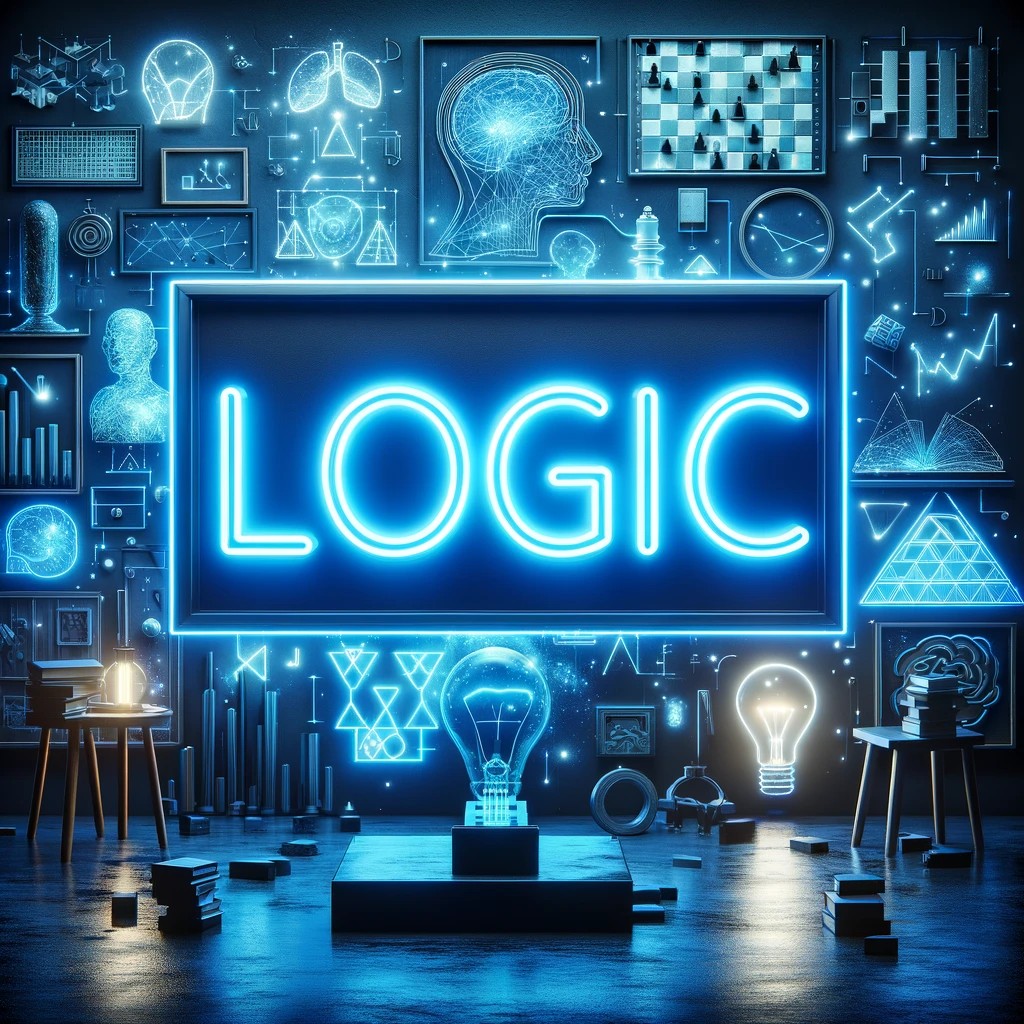
Logic is a fundamental discipline that plays a pivotal role in rational thinking, problem-solving, and decision-making. It is the systematic study of reasoning, argumentation, and inference, providing a structured framework for evaluating and validating propositions. Logic is characterized by several key components and principles:
- Reasoning: Logic is the science of reasoning, enabling individuals to make sound judgments and draw valid conclusions based on evidence and premises.
- Inference: Inference is the process of deriving new information from existing knowledge. Logic formalizes this process, distinguishing between deductive and inductive reasoning.
- Formal Logic: Formal logic employs symbolic languages and precise rules to represent and manipulate propositions, allowing for clear and unambiguous analysis.
- Propositional and Predicate Logic: These are fundamental branches of formal logic used to analyze the logical relationships between statements and quantify variables within statements.
- Deductive Reasoning: Deductive reasoning involves drawing specific conclusions from general premises. It adheres to the principle that if the premises are true, the conclusion must also be true.
- Inductive Reasoning: Inductive reasoning infers general principles from specific observations. While it is probabilistic and does not guarantee absolute truth, it is valuable for making predictions and generalizations.
- Fallacies: Logic identifies common fallacies, which are errors in reasoning that can lead to incorrect conclusions. Recognizing fallacies is crucial for critical thinking.
- Syllogisms: Syllogisms are structured arguments consisting of two premises and a conclusion. They illustrate deductive reasoning and are used to test the validity of arguments.
- Truth Tables: Truth tables are tools in logic that display all possible combinations of truth values for propositions, helping to determine the validity of logical expressions.
- Quantification Theory: This branch of logic deals with statements involving variables and quantifiers, such as “for all” (∀) and “there exists” (∃), facilitating precise analysis of mathematical and philosophical statements.
- Modal Logic: Modal logic extends classical logic to address necessity, possibility, and other modalities, enabling the examination of statements about the nature of reality.
- Philosophical Logic: Philosophical logic explores the foundations of logic, including questions about the nature of truth, meaning, and the relationship between language and reality.
- Practical Applications: Logic finds practical applications in computer science, mathematics, philosophy, law, science, and artificial intelligence, contributing to problem-solving and decision-making in these fields.
- Critical Thinking: Logic is a cornerstone of critical thinking, enabling individuals to assess arguments, identify flaws, and make informed choices in various aspects of life.
- Ethical Considerations: Ethical reasoning often involves logical analysis, ensuring that ethical principles and moral judgments are based on sound reasoning.
In summary, Logic is an essential discipline that underpins rational thought and the systematic evaluation of arguments. It encompasses various branches and principles, from deductive and inductive reasoning to formal logic and modal logic. Logic’s applications are diverse, impacting fields ranging from mathematics to ethics. Embracing the principles of Logic enhances one’s ability to think critically, solve complex problems, and make informed decisions in both academic and practical contexts.